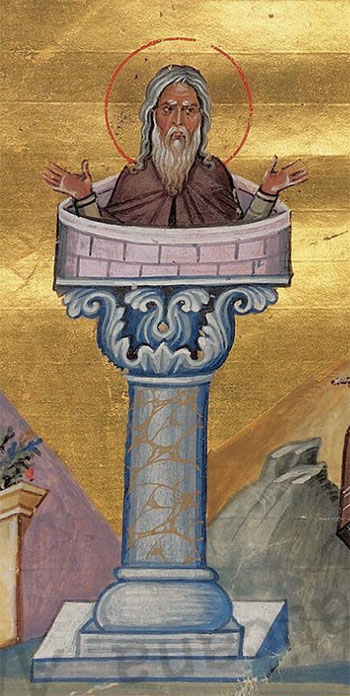
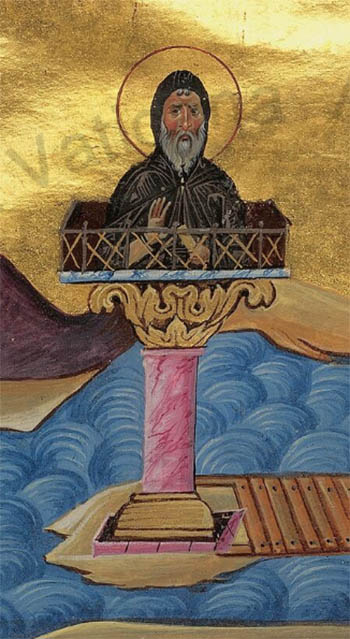
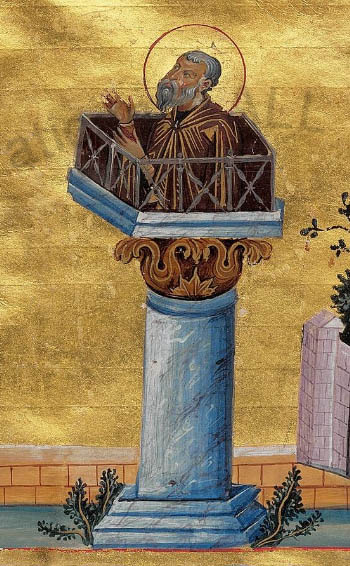
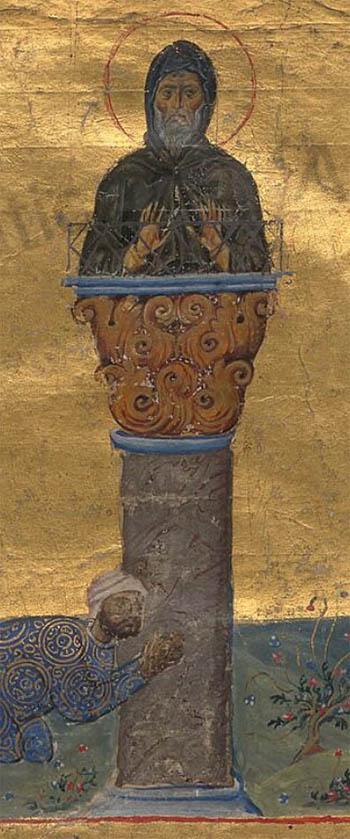

Terrible Adventures of the Grand Catalan Company
BY EDWIN PEARS, LL.B.
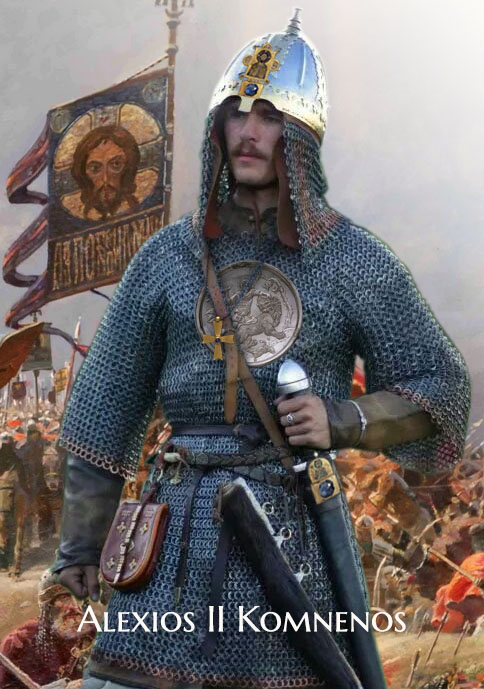 Now that, in 1302, peace was concluded in Sicily, their employers were anxious to be rid of the now useless mercenaries; for, though their courage, their recklessness of danger, and their prowess were indisputable, their lawlessness, their cruelty to the inhabitants of the country where they were encamped, and their insubordination, even to their own officers, were no less remarkable. Moreover, Frederic of Sicily was unable to pay them, and they had already commenced to pay themselves by general plunder. Unaccustomed to work, and used only to a life of rapine, they were ready to take service under any leader who appeared able to offer them good chances of pillage; but woe to the country to which they were sent, and to the cause which they promised to serve!
Now that, in 1302, peace was concluded in Sicily, their employers were anxious to be rid of the now useless mercenaries; for, though their courage, their recklessness of danger, and their prowess were indisputable, their lawlessness, their cruelty to the inhabitants of the country where they were encamped, and their insubordination, even to their own officers, were no less remarkable. Moreover, Frederic of Sicily was unable to pay them, and they had already commenced to pay themselves by general plunder. Unaccustomed to work, and used only to a life of rapine, they were ready to take service under any leader who appeared able to offer them good chances of pillage; but woe to the country to which they were sent, and to the cause which they promised to serve!
Among their leaders was a German named Robert Blum, whose name became changed or translated to Roger de Flor. He was a typical instance of the worst kind of soldier of fortune of the middle ages. He entered the order of the Templars, but was degraded because he betrayed the Christians in return for bribes from the Moslems. Then he turned pirate, and sought foreign service. The French refused to have anything to do with him. He had therefore gone over to the enemy, and the king of Sicily made him vice-admiral. He robbed for his master wherever he could find anything to steal. If he met an enemy, he took all he could carry away, without acknowledgment; if a friend, he took what he wanted, and gave acknowledgments of a very doubtful value, which were to be paid by the king of Sicily at the end of the war.
When the Sicilian war was over, the Grand Master of the Temple urged the pope to insist that Roger de Flor should be surrendered for punishment. Roger learned that such a demand was about to be made33 and anticipated extradition by taking service with the Greek emperor, nominally to fight against the Turks, promising to bring with him a body of Spanish troops. The alarm of Andronicus at the report of the expedition of Charles of Valois against him was great. It looked as if all Western princes were about to enter upon a new crusade for the recapture of Constantinople. Hence he was prepared to welcome aid from any source.
In 1303 Roger de Flor arrived at Constantinople with a fleet of seven ships and eight thousand men, who are described by Pachymer as Catalans and Amogavares, the latter being adventurers from other parts of Spain than Catalonia. This band was soon spoken of as the Catalan Grand Company.
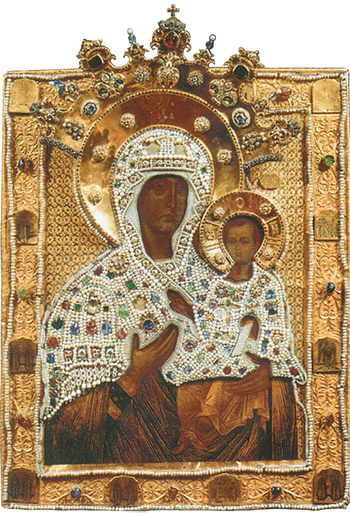 Roger was accompanied by Fernand Ximenes, who was also at the head of a large body of retainers who were desirous of taking service under the emperor. The reputation which Roger de Flor bore as the most daring of soldiers caused him to be eagerly welcomed by the emperor, who conferred upon him the title of Grand Duke and hoped much from his services. His reckless followers knew only one virtue—that of courage.
Roger was accompanied by Fernand Ximenes, who was also at the head of a large body of retainers who were desirous of taking service under the emperor. The reputation which Roger de Flor bore as the most daring of soldiers caused him to be eagerly welcomed by the emperor, who conferred upon him the title of Grand Duke and hoped much from his services. His reckless followers knew only one virtue—that of courage.
Their first adventure showed, however, the spirit of lawlessness which existed in his army. The emperor had borrowed a large sum of money from the Genoese which Roger alleged that he had employed in raising new troops. When the Genoese applied to Roger for payment it was refused. The emperor sent a high official to arrange the difficulty, and the Catalans cut him in pieces. The Grand Company were at this time encamped outside the city walls in the neighbourhood of the present Eyoub. They seized the monastery of St. Cosmas and held it as a fortress. The Genoese erected barricades on the shore of the Golden Horn, and a struggle took place between the two in which many were killed on both sides.
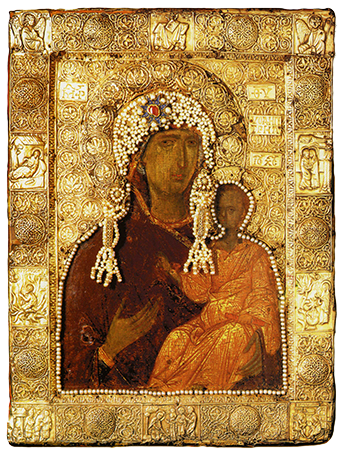 Shortly afterwards the Spaniards were induced to cross the Marmora to Cyzicus, and a quarrel ensued between them and the Alans, one of the first of many Asiatic tribes who had pushed their way into the valley of the Danube, and a band of whom had been taken into the imperial service. The son of the leader of the Alans was killed, and his soldiers vowed vengeance. Roger de Flor then pushed on to attack the Turks. He was seen at his best when he met the enemy. He raised the siege of Philadelphia and defeated the various armies sent against him, killing, it is said, thirty thousand Turks and driving the rest of them out of Lydia and Caria. But he was almost as terrible to the Christians whom he had been sent to protect as he was to the Moslems. His progress through Asia Minor was marked by constant plunder. Pachymer says that those subjects of the emperor who fell into his hands after they had escaped from the44 enemy had thrown themselves out of the smoke into the fire. Those who gave up their property had difficulty in saving their lives. The remark is made on the occasion of Roger’s visit to Philadelphia, which he pillaged as if it had been an enemy’s city. He treated Pergamos and Ephesus in the same way. His ships plundered the islands of Chios, Lemnos, and Mytilene. The inhabitants of Magnesia resisted his exactions, and he therefore laid siege to the city and did his utmost to capture it. It was in vain that the emperor sent orders to raise the siege and to attack Turks and not Christians. The Alans who were with him urged obedience and withdrew when Roger refused. It was only after a long siege that he recognised that he was unable to capture the city and abandoned the attempt. In retreating he plundered the Greeks as remorselessly as he did the Turks against whom he had been sent. ‘Notwithstanding,’ says Pachymer, ‘that the emperor had prepared all that was needed for the support of Roger and his army, the peasants were robbed of everything they possessed and were left without either seed-corn or oxen for ploughing. At the news of his coming many abandoned their farms and took refuge in the islands. He appropriated to his own use the tithes and other taxes which should have gone to the emperor.’ Indeed there appears no reason to doubt the assertion that this adventurer had now formed the intention of carving out a kingdom for himself. It is possible indeed, and is in conformity with his conduct, that from the first he had entertained such an intention. From this time until his death he became the enemy of the emperor whom he had come to aid.
Shortly afterwards the Spaniards were induced to cross the Marmora to Cyzicus, and a quarrel ensued between them and the Alans, one of the first of many Asiatic tribes who had pushed their way into the valley of the Danube, and a band of whom had been taken into the imperial service. The son of the leader of the Alans was killed, and his soldiers vowed vengeance. Roger de Flor then pushed on to attack the Turks. He was seen at his best when he met the enemy. He raised the siege of Philadelphia and defeated the various armies sent against him, killing, it is said, thirty thousand Turks and driving the rest of them out of Lydia and Caria. But he was almost as terrible to the Christians whom he had been sent to protect as he was to the Moslems. His progress through Asia Minor was marked by constant plunder. Pachymer says that those subjects of the emperor who fell into his hands after they had escaped from the44 enemy had thrown themselves out of the smoke into the fire. Those who gave up their property had difficulty in saving their lives. The remark is made on the occasion of Roger’s visit to Philadelphia, which he pillaged as if it had been an enemy’s city. He treated Pergamos and Ephesus in the same way. His ships plundered the islands of Chios, Lemnos, and Mytilene. The inhabitants of Magnesia resisted his exactions, and he therefore laid siege to the city and did his utmost to capture it. It was in vain that the emperor sent orders to raise the siege and to attack Turks and not Christians. The Alans who were with him urged obedience and withdrew when Roger refused. It was only after a long siege that he recognised that he was unable to capture the city and abandoned the attempt. In retreating he plundered the Greeks as remorselessly as he did the Turks against whom he had been sent. ‘Notwithstanding,’ says Pachymer, ‘that the emperor had prepared all that was needed for the support of Roger and his army, the peasants were robbed of everything they possessed and were left without either seed-corn or oxen for ploughing. At the news of his coming many abandoned their farms and took refuge in the islands. He appropriated to his own use the tithes and other taxes which should have gone to the emperor.’ Indeed there appears no reason to doubt the assertion that this adventurer had now formed the intention of carving out a kingdom for himself. It is possible indeed, and is in conformity with his conduct, that from the first he had entertained such an intention. From this time until his death he became the enemy of the emperor whom he had come to aid.
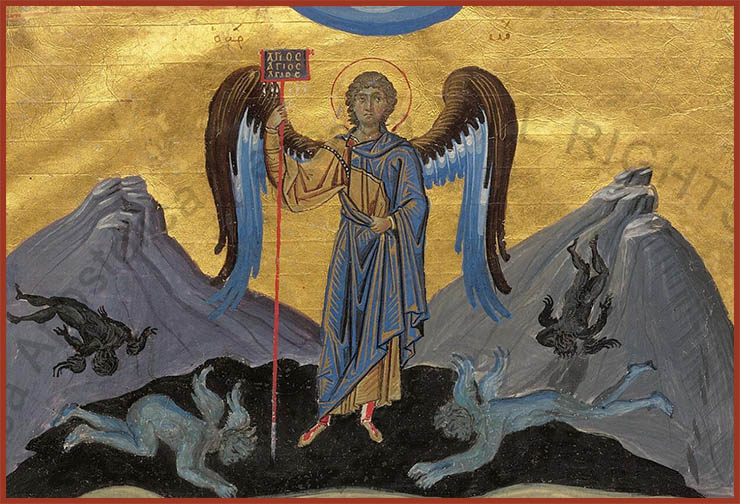 When the Greek troops heard of the outrages on their countrymen they asked the emperor to be led against the Catalans instead of against the Turks. But the emperor himself was unwilling to break with Roger and his army, or even that they should be distant from the city so long as he expected the arrival of the great expedition intended for its capture. He still also cherished the hope that the services of the Grand Company might be employed against the Turks45 in case the expedition from the West did not arrive. While he was hesitating, Berenger of Catalonia arrived with new reinforcements in nine large vessels, and soon he and Roger presented themselves at the imperial court. Roger urged the emperor to subsidise Berenger, and in reply to the question why the latter had come answered, because he had heard of the liberality of the emperor’s payments. In a formal assembly he reproached Roger with the lawlessness of his troops, with the injury he had done to the Greeks, and especially with the burden of expenses he had cast upon the empire. Finally, however, he consented to receive Berenger and to assign to him a portion of the tithes for the maintenance of the Catalan armies.
When the Greek troops heard of the outrages on their countrymen they asked the emperor to be led against the Catalans instead of against the Turks. But the emperor himself was unwilling to break with Roger and his army, or even that they should be distant from the city so long as he expected the arrival of the great expedition intended for its capture. He still also cherished the hope that the services of the Grand Company might be employed against the Turks45 in case the expedition from the West did not arrive. While he was hesitating, Berenger of Catalonia arrived with new reinforcements in nine large vessels, and soon he and Roger presented themselves at the imperial court. Roger urged the emperor to subsidise Berenger, and in reply to the question why the latter had come answered, because he had heard of the liberality of the emperor’s payments. In a formal assembly he reproached Roger with the lawlessness of his troops, with the injury he had done to the Greeks, and especially with the burden of expenses he had cast upon the empire. Finally, however, he consented to receive Berenger and to assign to him a portion of the tithes for the maintenance of the Catalan armies.
When, shortly after, a deputation of Catalans was sent to the emperor demanding further pay, he replied by emptying in their presence sacks full of letters complaining of exactions by the Spaniards. In spite of these complaints and of the exactions and lawlessness of the Grand Company, he appears to have been unwilling to lose their services. He recounted the money payments he had made, but promised to give them more than they had asked if only they would at once return to attack the enemy in Asia. The deputation knew the emperor’s anxiety and desire to keep his own troops for the defence of the city against the expedition of Charles, and therefore refused to return without further payment. All argument was useless. Berenger was dissatisfied with the offers made to him personally and sailed away from the Golden Horn during the night for Gallipoli, which city was held by his countrymen. Roger pleaded in vain for more money to be paid at once. It was not there to be given. The tension between the Spaniards and the emperor became so great that the latter sent orders to his son Michael, encamped near Apros, to be ready against an attack by the Catalans.
Some months later, in 1307, Roger went to Adrianople under pretence that he wished to pay his respects to Michael at Apros and to take leave of him, as he declared he was about to quit the country. Pachymer, probably reflecting46 the popular belief, states that his real object was to learn the number of men in the Greek army and what were his chances in an attack upon it. Michael received him in a friendly manner, but the Alans in his service had not forgotten the vengeance they had vowed against him for having at Cyzicus killed the son of George their leader, and as Roger was entering the audience chamber he was stabbed by George Assassination of Roger de Flor.himself. Upon news of the assassination, the Catalans fled to Gallipoli, putting men, women, and children to the sword during their flight. Michael followed them and laid siege to the city, but Berenger persuaded the Emperor Andronicus to grant the besieged time and so arranged matters that the Spaniards were able to take ship and escape. They made their way once more across the Marmora to Cyzicus, but the inhabitants stoutly resisted, and the besiegers left for Perinthos, where they killed every man they could lay hands on. When the news reached the capital the inhabitants demanded vengeance on those of the Catalans who had remained there and, taking the law into their own hands, burned their houses. The patriarch, who had in vain attempted to check their fury, with difficulty saved his own life.
The Spaniards were now at open war with the Greeks, and even Andronicus would have been glad to get rid of them. They attacked the seafaring population at Rhegium, now called Buyuk Chekmeji, burnt several men, impaled their children, and massacred those whom they had employed to carry off their booty. Their progress was checked for a while by the arrival of sixteen Genoese ships. As the Genoese had had trouble with the emperor, the Spaniards were in hopes of their aid, but the former sent secretly into the city from their fleet to learn the truth about the situation, heard the Greek version of the differences, and then declared for the emperor. The Genoese and imperial fleets attacked the Spaniards, who were led by Berenger, defeated them, captured their leader, and subsequently sent him prisoner to Italy.
Gallipoli was, however, still in the hands of the Catalans47 Turkish auxiliaries enter Europe.and an attempt to buy the aid of the Genoese to relieve it failed. Michael endeavoured to capture it. Both armies had secured Turkish allies. A decisive battle was fought near Apros, in which the Spaniards were successful. They followed up their victory by ravaging the neighbouring country, and in this they were joined by a band of Turks who had been invited to join them and by Alans who had quitted the imperial service.
The country between Constantinople and Adrianople was laid waste, all the inhabitants abandoning their houses to save their lives. The garrison of Catalans in Gallipoli in like manner ravaged the western part of Thrace; men were killed, women and children, flocks and herds were carried off. The women and children were taken to be sold to, or to be held as slaves by, the Turks.
The emperor, unable either to employ or to defeat the Spaniards and being hard pressed by the Turks in Asia Minor, endeavoured now to buy them off. An embassy was sent to them, but the conditions demanded were impossible, and thereupon the scenes of violence were renewed. Bands of Spaniards and their Turkish allies made incursions in the country behind Constantinople as far as Chorlou, laid siege to Rodosto, and killed all whom they found outside the walls. Those who could escape took refuge in Constantinople. Pachymer states that the Spaniards claimed to have killed five thousand of these peasants. Adrianople was besieged and, though it was not captured, the army of the Alans, who had once more joined the Greeks, was defeated, the vineyards around the city were rooted up and the fertile country converted for the time into a desert. When the emperor again made an effort to buy the Spaniards off he found their terms higher than ever, on account of their success. They not only demanded heavy payments for services never performed, but that the Emperor should pay ransom for the towns, the fortresses and prisoners captured by them.
The two divisions of Spaniards, one under Rocafert, who had been appointed to succeed Roger, and the other under48 Fernand Ximenes, were now acting separately, and while the negotiations were going on the former set out for Constantinople. They were, however, resisted by the imperial troops and compelled to retire. They continued under Rocafert to devastate Thrace. As they themselves received no food from abroad nor tilled the ground in Thrace and had already devastated the country, they were at length forced to retreat from want of provisions to Gallipoli.
Happily, serious divisions arose between the Spaniards themselves. A large number of them refused to recognise Rocafert who had been named leader with the consent of Ximenes. On the other hand, Rocafert declared that as he had conquered the country he had no intention of abandoning the leadership. The influence of Guy, the nephew of the king of Sicily, who had brought with him another detachment of foreign freebooters in seven large ships and who counted upon utilising the Grand Company for the re-establishment of the Latin empire in his own family, was unable to settle the differences between the two parties, and they were soon at open war with each other. On one side was Rocafert, on the other were Guy, Ximenes, and Berenger, who had been released by the Genoese.
In view of an attack by the imperial troops and of the necessity of finding provisions, a peace was patched up between the two Spanish factions, and they started in a body to attack Salonica and plunder Macedonia. The six thousand Spaniards were accompanied by three thousand Turks. Rocafert’s division led. The van of the second division reached the camping ground of the first before it had been completely evacuated, and the two armies at once began fighting each other. Berenger hastened to put an end to the quarrel and was killed by Rocafert’s brother. Ximenes was captured. Rocafert was now the sole leader. He attempted to capture Salonica but failed. He then retreated in order to return to Thrace: but his position was growing weak. He appealed to a French admiral, who had arrived in the northern Aegean as the precursor of the expected great expedition from the West, for his intervention with the Spaniards who49 distrusted him, but the admiral seized and carried him off to the king of Naples, where he was thrown into prison and starved to death.
When the partisans of Rocafert in the Grand Company learned of what they regarded as the treachery of the French admiral, they murdered their officers under the belief that they were parties to the capture. They elected new leaders, marched into Thessaly, and took service with the descendants of the crusading barons who had carved out territories for themselves in that province and in Greece. It is unnecessary to follow them there. It is sufficient to say that the Greek army had dogged their movements, had fought well, had Its end, 1315 defeated them in many engagements, and that what may be regarded as the last struggle with the Grand Company took place in 1315.
The devastation caused by the attempts from the West to re-establish the Latin empire culminating in the disorders caused by the Grand Company was such that the empire’s chances of recovering its strength were enormously diminished. The fall of the city in 1204 had been followed by the destruction of the organisation in Asia Minor for resisting the progress of Asiatic hordes towards Europe. One may conjecture that the great statesman Innocent the Third, who had foreseen some of the evil effects which would inevitably follow from the success of Dandolo and Montferrat, would have realised the necessity of aiding Constantinople in making such resistance. Unfortunately, Innocent’s successors were less statesmanlike. Instead of seeking to strengthen the Greeks in Constantinople by condemning the wild lawlessness of the Spaniards, their dominating idea was to restore the Latin empire, so as to force the members of the Orthodox Church to enter into Union. The results of all their attempts were altogether disastrous. The empire was weakened on every side. Its component parts had always been loosely bound together. Long distances in ages of badly constructed roads had prevented the development of loyalty as a bond of union. The traditional attachment to the autocrat at Constantinople had been shaken by the50 change of dynasties. Peasants living far away from the capital, who had no other desire than to till their lands in peace, were ready to accept the rule of a Serbian or a Bulgarian, of a powerful rebel against the empire or even of the Turks themselves, provided they were undisturbed. Those who were in the neighbourhood of the capital were in worse plight. The development of trade and commerce had been hindered. Thrace had become a desolation. During five years the Spaniards had lived on the country and only deserted it when there remained nothing further to plunder. The thriving communities extending along all the northern shores of the Marmora from the city to Gallipoli were impoverished or destroyed. Flourishing vineyards and oliveyards were abandoned. The fishing and shipping communities ceased to find occupation. Great numbers of the inhabitants were exterminated.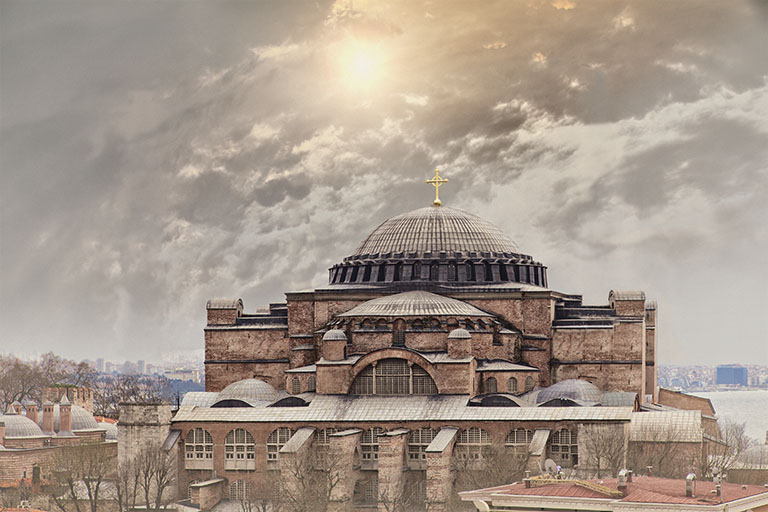




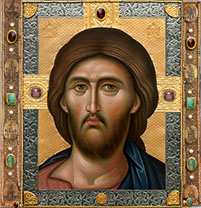 click here for icons of christ
click here for icons of christ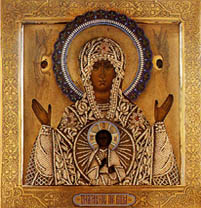 click here for icons of the theotokos
click here for icons of the theotokos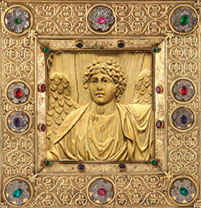 click here for icons of angels
click here for icons of angels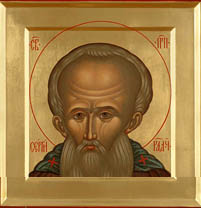 click here for icons of saints
click here for icons of saints








